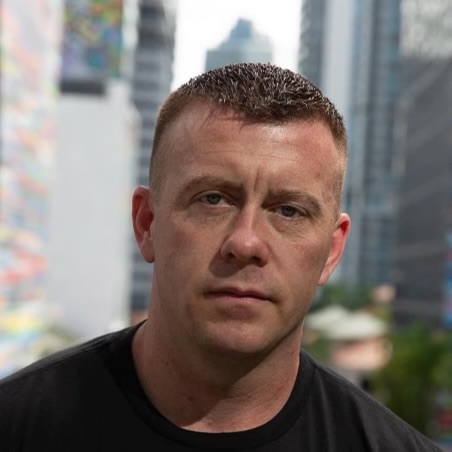Shoddy Reporting and ‘Woke’ Bias: Spofford Sues NHPR

Former Granite Recovery Centers CEO Eric Spofford is suing New Hampshire Public Radio reporter Lauren Chooljian, alleging she has engaged in a biased campaign targeting the politically-connected businessman.
According to his lawsuit, filed Tuesday in Rockingham Superior Court, “Chooljian viewed Eric as her opportunity to ascend the journalism ranks. To Chooljian, a #MeToo-styled report about a white male, Republican donor, and bold and successful businessman, who made money in the substance use disorder treatment business, had all the markings of a career-defining piece.”
Spofford is being represented by high-powered attorney Howard Cooper with the Boston firm Todd & Weld. Jayme Simoes, a communications consultant with NHPR, declined to comment on the lawsuit, saying the public radio station had not yet been served.
“NHPR has not been served with a lawsuit and cannot comment on a suit they haven’t seen,” Simoes said.
Chooljian made waves when she reported in March that Spofford sexually harassed multiple women. The accusations included at least one sexual assault Spofford committed on a former Granite State Recovery Centers employee.
Spofford is a big, and potentially attractive, target for the left-leaning media outlet. Politically connected to Gov. Chris Sununu, Spofford’s drug abuse recovery centers became the largest recovery facilities in New Hampshire. According to Chooljian’s reporting, Spofford even counseled Sununu on the response to New Hampshire’s opined epidemic.
“Sununu championed Spofford, saying he is ‘one of the first guys I’ll pick up the phone to’ for advice about responding to the opioid crisis,” Chooljian wrote.
Spofford sold Granite Recovery Centers to BayMark Health Services, a Texas-based treatment company, last year. The sale price was not disclosed.
Spofford’s lawsuit claims that one of the sources Chooljian relied on, former GSC employee Piers Kaniuka, retracted his statements that linked Spofford to the abuse. That retraction has gone unreported by NHPR, according to the lawsuit.
“Specifically, I am concerned with your use of my statement comparing Mr. Spofford to Harvey Weinstein and my statement that Mr. Spofford should be prosecuted. At the time I made those statements to Ms. Chooljian, I naively assumed that I would have been provided an opportunity to vet any statements I made, and to provide permission for them to be used, prior to their publication as part of the article,” Kaniuka wrote to NHPR’s board in May. “I regret making those statements. I did not have any direct personal knowledge concerning any sexual abuse, misconduct, or other inappropriate behavior by Mr. Spofford with employees, clients, or former clients.”
According to the lawsuit, “Kaniuka was one of only four on-the-record sources identified in Chooljian’s reporting. Of those four, Kaniuka was the only one who had known Eric for nearly two decades. Two of the others had been acquainted with Eric as employees of GRC for less than three months each, and one had never even met Eric.”
Since Kaniuka wrote that letter to NHPR, the retraction has been suppressed by the radio station, according to the lawsuit.
“NHPR instead has decided for its readers and listeners that Kaniuka’s statement is irrelevant to Chooljian’s reporting about Eric. Yet NHPR knows the opposite is true,” the lawsuit states.
The motivation behind the story is money and ambition, according to the lawsuit. NHPR has used its Spofford coverage to seek donations and corporate sponsorships while Chooljian used it to get a job with a national media outlet.
“On information and belief, taking down Eric became a means to Chooljian’s end goal: to join a national news organization,” the lawsuit states. “On information and belief, NHPR was depending on Chooljian’s piece to aid its fundraising efforts this year. If Chooljian could deliver reporting that took down someone NHPR viewed as a prominent figure in the state, that would garner national attention and greater visibility to donors nationwide.”
“A reporter’s current and former homes in Melrose, Mass., and Hampstead, N.H., were vandalized early in the morning of Saturday, May 21, police said. In Melrose, a person spray-painted the words “Just the beginning!” in red on the home, threw a brick through a window and was seen running away,” the NHPR report states.
The report quotes Melrose Police Chief Michael Lyle who connected the vandalism to Spofford.
“I would certainly think [Spofford] may be interviewed by the authorities. He may have some information that might support a case. It would be too early to say he would be a person of interest,” Lyle said. “After the article came out, all this trouble started for the reporter or the news organization. At some point [investigators] may have a conversation with him.”
Spofford’s lawsuit takes issue with his even being mentioned in the story about the vandalism, saying it was part of an effort to divert the public’s attention away from the Kaniuka retraction.
“The NHPR defendants knowingly weaponized a conspiratorial connection between Eric and the alleged vandalism as a means for the NHPR defendants to deflect from their suppression of the Kaniuka retraction. There was not a scintilla of evidence connecting Eric to the alleged vandalism—the alleged vandal was caught on camera and was very obviously not Eric,” the lawsuit states.


